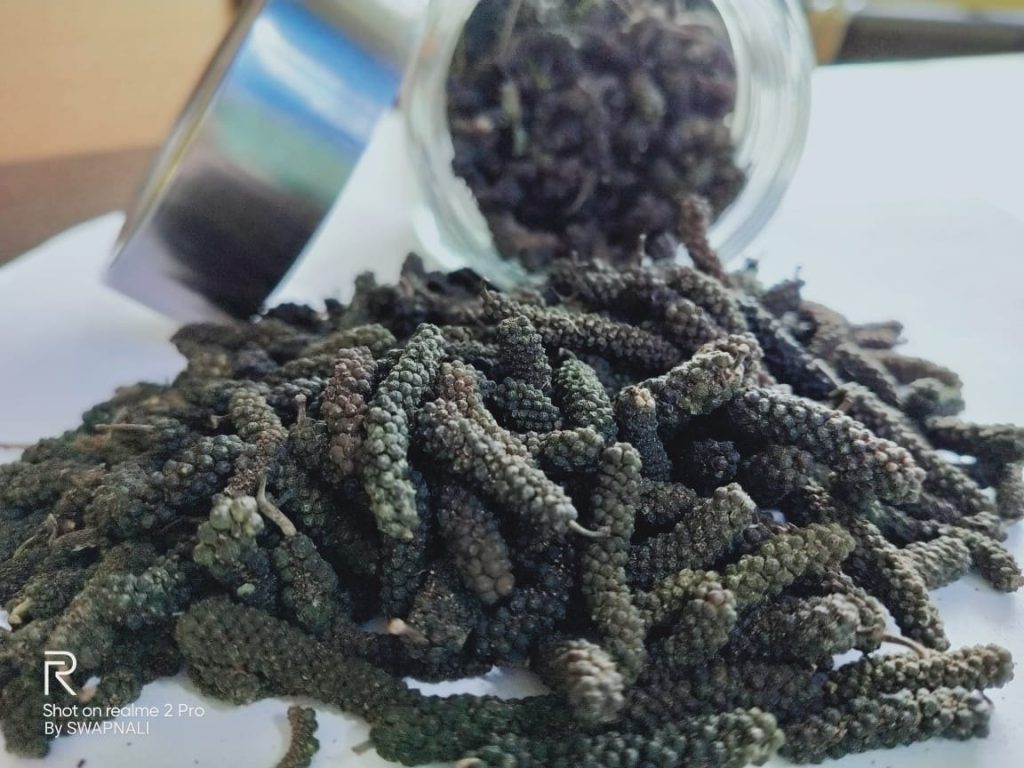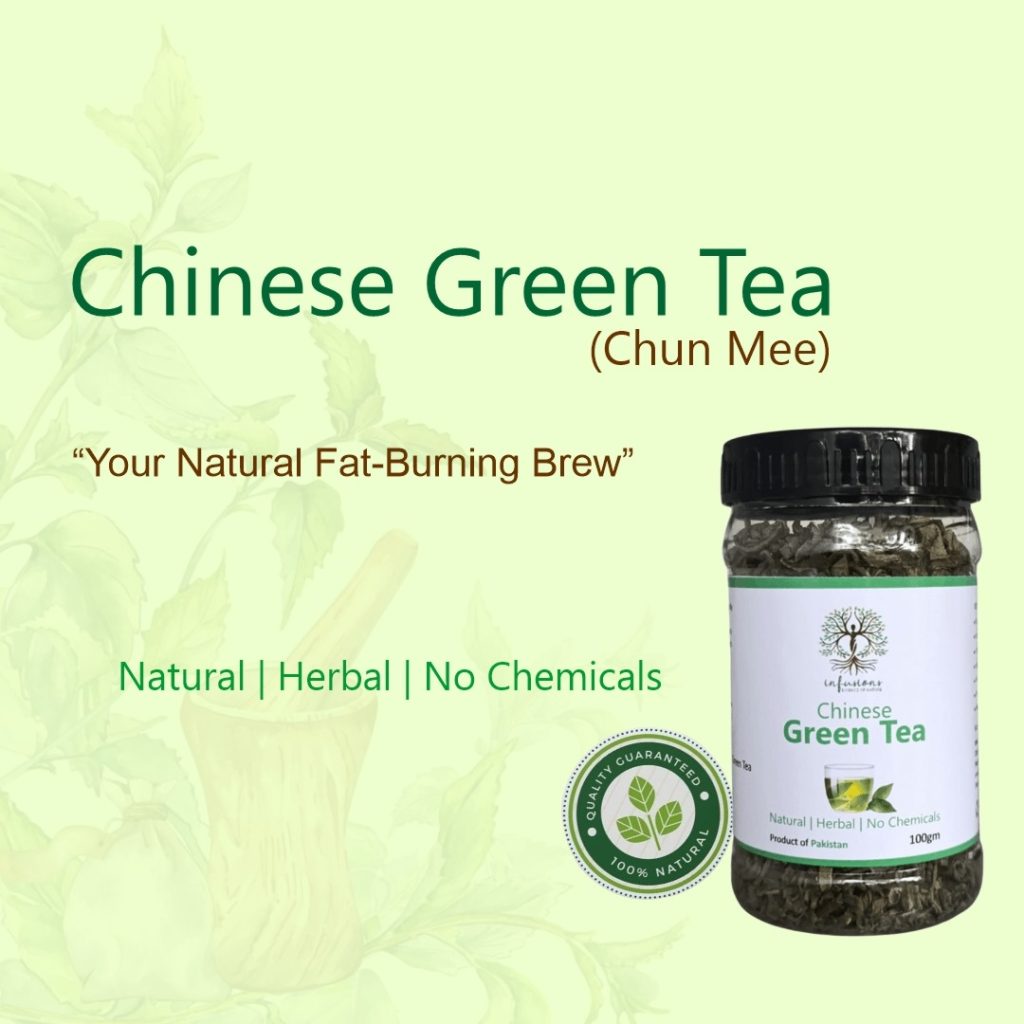
Infusions Pakistan – Bringing Health & Wellness Back Into Everyday Life
Because your health deserves nature’s touch. In today’s fast-paced world,

Black pepper—known in Ayurveda as Pipplee—has long been praised not only as a kitchen staple but also as a powerful medicinal herb. Often dubbed the “King of Spices,” Pipplee (Piper nigrum) is valued in traditional Indian medicine for its warming properties and ability to enhance nutrient absorption. In this post, we’ll explore the historical background of Pipplee, its bioactive constituents, and the diverse health benefits that make it an indispensable ingredient in both culinary and therapeutic applications.
Ancient Origins
Archaeological evidence shows black pepper use in the Indus Valley Civilization as early as 2000 BCE. Ayurvedic texts such as the Charaka Samhita and Sushruta Samhita describe Pipplee’s warming and circulatory properties, recommending it to balance Vata and Kapha doshas.
Pilee has been traditionally recognized for its various health benefits, making it an essential component of Ayurvedic practices.
Traditional Formulations
Pipplee is often combined with other herbs—such as ginger, long pepper (Pippali), and turmeric—to create classic formulations like Trikatu, which is renowned for supporting digestion and respiratory health.
| Compound | Role & Benefits |
|---|---|
| Piperine | Enhances bioavailability of nutrients and compounds; exhibits anti-inflammatory and antioxidant properties. |
| Essential Oils | Contribute to Pipplee’s distinctive aroma; support digestive enzyme secretion. |
| Alkaloids | Exhibit antimicrobial actions, aiding in gut health and immune support. |
Piperine stimulates the secretion of digestive enzymes from the pancreas and enhances gastric motility, helping to break down proteins, fats, and carbohydrates more efficiently. Additionally, piperine increases the bioavailability of nutrients—such as curcumin in turmeric—by up to 2,000% in some studies.
In Ayurvedic practice, Pipplee is used in inhalations and herbal decoctions to relieve congestion, coughs, and bronchial spasms. Its warming nature helps to clear mucus and soothe irritated airways.
Incorporating Pilee into your daily diet can enhance its benefits for your respiratory health.
Piperine and other phenolic compounds in black pepper scavenge free radicals, reducing oxidative stress. This antioxidant activity, combined with anti-inflammatory effects, supports joint health and may help mitigate chronic inflammation.
Many people find that using Pilee in their meals or teas can provide significant health enhancements.
Several studies suggest that piperine can modulate lipid metabolism and improve insulin sensitivity, potentially aiding in weight management and metabolic homeostasis.
Incorporating Pilee into your diet may support weight management and metabolic health.
Emerging research indicates that piperine may inhibit enzymes that degrade neurotransmitters and enhance cognitive function. Its antioxidant action also helps protect neuronal cells against oxidative damage.
Pilee has also been explored for its potential neuroprotective effects, contributing to cognitive health.
Culinary Uses
Using Pilee in your cooking can unlock its myriad health benefits.
Freshly ground over salads, soups, and stir-fries.
As part of spice blends like Garam Masala or homemade Trikatu powder (equal parts black pepper, long pepper, and ginger powder).
Try adding Pilee to your spice blends for enhanced flavor and health benefits.
Herbal Infusions & Decoctions
Simple Pipplee Tea: Crush ½ teaspoon of black peppercorns, simmer in 2 cups of water for 5 minutes; strain and sip warm.
A simple infusion of Pilee can offer comforting health benefits.
Digestive Tonic: Combine Pipplee with a pinch of turmeric and a slice of ginger in hot water; drink before meals.
Supplemental Forms
Pilee can be found in various supplemental forms, making it easier to include in your health regimen.
Standardized piperine extracts.
Ayurvedic capsules or tablets incorporating Pipplee with synergistic herbs.
Dosage Awareness: Start with small amounts (¼ teaspoon of ground pepper) and adjust based on tolerance.
Gastrointestinal Sensitivity: Excessive intake may irritate the stomach lining in susceptible individuals.
Medication Interactions: Piperine can increase the absorption of certain drugs; consult a healthcare provider if you’re on prescription medications.
Pipplee (black pepper seed), also referred to as Pilee, is far more than a flavorful seasoning—it’s a versatile Ayurvedic herb with a broad spectrum of health-promoting properties. From enhancing digestion and nutrient uptake to supporting respiratory function and cognitive health, its benefits are well-documented both in traditional texts and modern research. Try incorporating freshly ground Pilee into your meals or brewing it as a warming infusion to experience its therapeutic potential firsthand.

Because your health deserves nature’s touch. In today’s fast-paced world,

Herbal adaptogens stress management offers natural support to calm anxiety,

Green tea weight management harnesses powerful antioxidants (EGCG) to boost